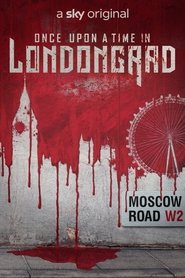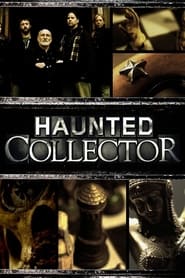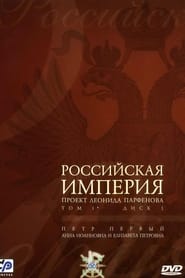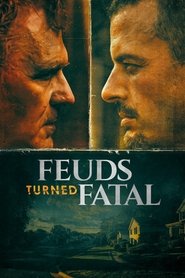Documentary TV Series - Page 452
-
Once Upon a Time in Londongrad
2022
star 9Exploring the 14 mysterious deaths in the UK with alleged connections to Russia over two decades. -
Hopelessly In Love
2020
Hopelessly In Love
2020
Emotional new interviews and never-before-seen footage reveal untold secrets in the most iconic yet calamitous celebrity unions in pop culture history. -
Unique Sweets
2011
-
Haunted Collector
2011
Haunted Collector
2011
star 5.3Haunted Collector is an American television reality series which airs on the Syfy cable television channel. The first season premiered on June 1, 2011, and ended on July 6, 2011. The series features a team of paranormal investigators led by demonologist John Zaffis, who investigates alleged haunted locations with the hopes of identifying and removing any on-site artifacts or trigger objects that may be the source of the supposed paranormal or poltergeist activity. The production of the second season started in December 2011, and premiered on June 6, 2012. On September 17, 2012, Syfy announced that the series has been renewed for 12-episode third season, which premiered on March 6, 2013. -
Lady Tamara
2022
Lady Tamara
2022
star 4.7The glamorous life of socialite Tamara Falcó takes center stage in this reality series as she balances work, play and her famous family. -
Kendisfamilier
2019
-
Russian Empire
2000
Russian Empire
2000
A documentary series which presents a modern look at the history of the Russian state from 1697 to 1917. Each episode covers the reign of one or several monarchs from Peter I to Nicholas II. -
Patrons - Télévision
1979
Patrons - Télévision
1979
Three programs made on the basis of material gathered for the documentary His Master's Voice, where twelve CEOs of large French companies face the camera and talk about power, hierarchy, trade unions, strikes and self-management: Secrets About the Worker; A Spanner in the Works and The Battle Started at Landerneau. The three parts were banned from French national television (Antenne 2) but released at Cinéma La Clef in Paris a few weeks later. -
The '80s Greatest
2018
The '80s Greatest
2018
star 7.7A challenging and stimulating view of one of history's most enigmatic periods, shining a light on the people and events that shaped the decade while illuminating the trends that helped design our future. -
Feuds Turned Fatal
2024
Feuds Turned Fatal
2024
star 9.3Retaliation and revenge unfold when friendships turn into furious feuds. As each feud escalates, one-time friends, family, and partners go from minor disagreements to murder. People from both sides of the feud tell their story of revenge gone wrong. -
Willie
2000
Willie
2000
-
Verscheurd Amerika
2024
Verscheurd Amerika
2024
VRT NWS journalist Thomas De Graeve takes a road trip across America in the run-up to the 2024 election to chart the country's divisions. -
Across Borders
2022
Across Borders
2022
-
Body Atlas
1999
Body Atlas
1999
star 8Explore the mysterious regions inside the human body. See how vital organs interconnect to make human life possible. Learn how skeletons fit together. Witness the lightness and strength of bone, how muscles work as levers, what it takes to achieve the "perfect" body. See how the heart functions, and learn the roles of white and red blood cells. Discover the complex systems controlling breathing, digestion, glandular changes, and hearing. -
Pure Brews America
2015
Pure Brews America
2015
Visit the most wonderful microbreweries and brewpubs and meet the talented people that are the driving force behind the unique and delicious beers being produced. They share with us stories, successes, failures, and maybe even a secret or two about how they make the magic happen. -
On Base with Mookie Betts
2023
Star right fielder Mookie Betts interviews current MLB players for an up-close and personal look at their lives on and off the field. -
Les génies de la vitesse
2020
Follow Marie-Lyne Joncas as she meets with car modification enthusiasts. Could their genius allow her to compete with Ferraris, Lamborghinis and all the other supercars of rich businessman Olivier Benloulou? In drag racing, anything can happen!
















